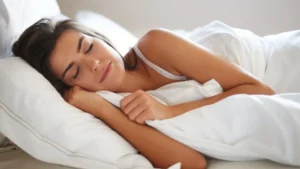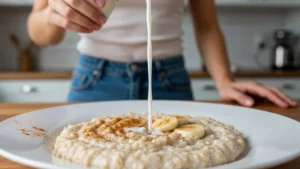A balanced diet can be a powerful ally against everyday stress. Although there are no magic solutions, including certain foods in your diet can stimulate the production of serotonin—the hormone linked to well-being—and improve your mood.
Contrary to popular belief, approximately 95% of the body’s serotonin is not produced in the brain, but in the gastrointestinal tract. This is explained by Jan Walker, a clinical nutrition specialist at Children’s Hospital Colorado, who emphasizes that a nutrient-rich diet promotes the production of this key substance for emotional health.
“If gut cells are well-nourished, they can help generate higher levels of serotonin, which translates into a better mood,” Walker says.
Furthermore, turning to unhealthy energy sources, such as excess refined sugars, can affect brain function and increase symptoms of depression, the expert warns. Although scientific evidence is still developing, nutritional patterns indicate that what we eat directly impacts our mental health.
Angel Planells, nutritionist and spokesperson for the Academy of Nutrition and Dietetics, agrees that the human body needs an adequate combination of vitamins, minerals, fatty acids, proteins, and carbohydrates to maintain hormonal balance. This dietary variety is key to dealing with daily stress more effectively.
Five food groups that help reduce stress
1. Dark chocolate
Benefits: Contains flavanols that relax blood vessels, reduce blood pressure, and decrease cortisol, the main stress hormone.
How to eat it: Avoid milk or white chocolate, as they often contain unhealthy added fats. Instead, opt for dark chocolate with a high cocoa content. You can add it to fruits, snacks, or homemade preparations like peppermint bark.
2. Fruits and vegetables
Benefits: Bananas promote the production of serotonin, blueberries provide antioxidants and vitamin C that fight cortisol, and vegetables such as spinach, avocados, or potatoes are rich in magnesium, essential for restful sleep.
How to eat them: Combine foods of various colors to maintain visual and nutritional interest. Easy examples are an apple with peanut butter or carrot sticks with hummus.
3. Whole grains
Benefits: They provide complex carbohydrates that are digested slowly, stabilize blood sugar, and prolong the feeling of satiety, which reduces stress.
How to consume them: Swap refined flours for whole-grain versions in breads, cookies, or pasta. You can also make hot oatmeal and add dried fruit, nuts, or a touch of dark chocolate to enhance its calming effect.
4. Oily Fish
Benefits: Rich in omega-3 fatty acids and vitamin D, fish such as salmon, mackerel, or sardines have positive effects on brain health and help reduce anxiety.
How to eat it: Add it to salads, pizzas, pastas, or risottos. Smoked or preserved options are also valid and easy to incorporate into your diet.
5. Fermented dairy products
Benefits: Products like yogurt and milk contain probiotics that promote intestinal health, which is key to serotonin production. Plus, warm milk can promote deeper sleep.
How to eat them: Choose unsweetened Greek yogurt, accompanied by fresh fruit, nuts, and a little honey. You can also make a nighttime smoothie or a hot drink with milk and dark chocolate to relax before bed.
A varied diet rich in essential nutrients and low in ultra-processed foods not only strengthens the body but can also help balance emotions. Incorporating these stress-reducing foods into your daily diet is an effective strategy for taking care of your mental health and facing daily challenges with more energy.























+ There are no comments
Add yours